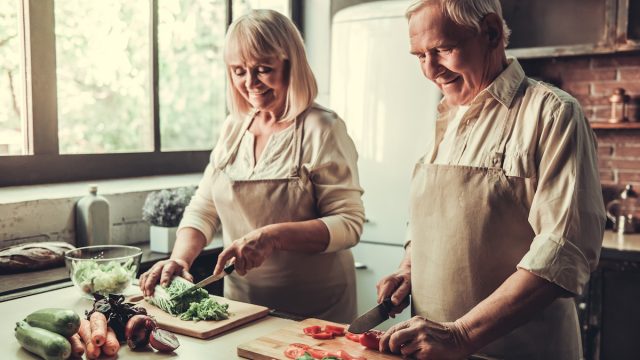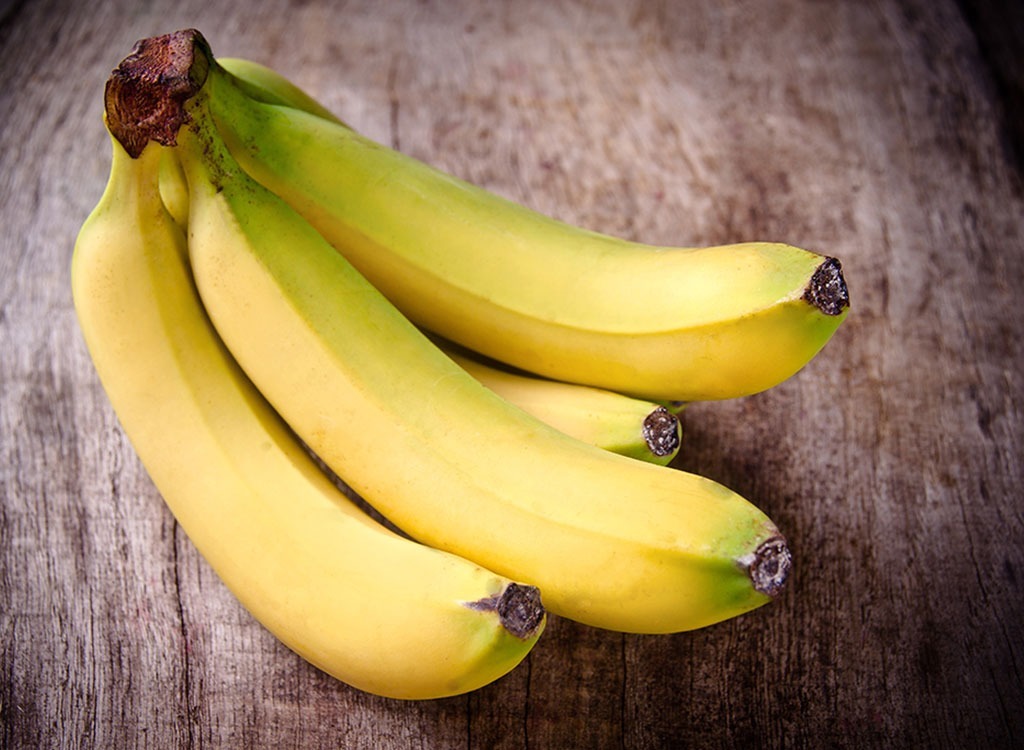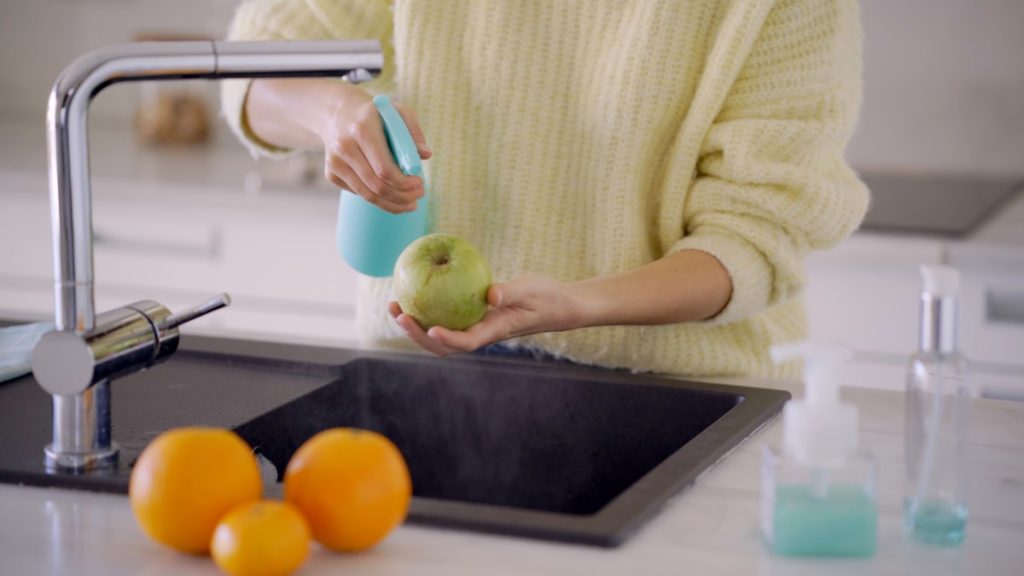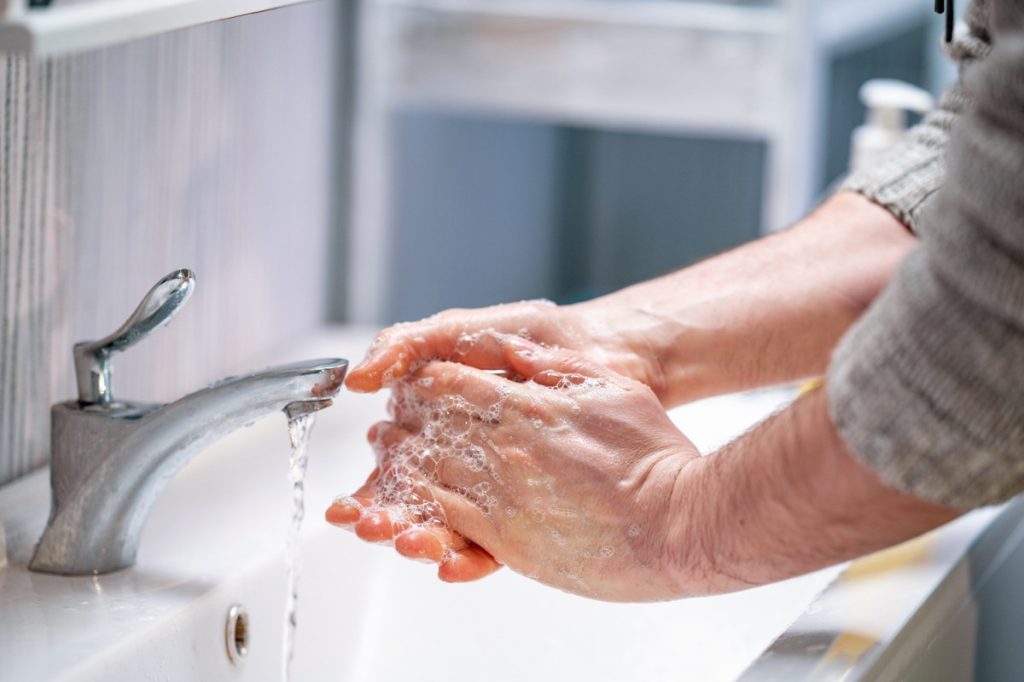If You’re Over 65, Never Do This With Your Produce, Experts Say

Fruits and vegetables are a staple of any healthy diet. Yet sometimes, raw produce can contain harmful germs that spread foodborne illness, such as Salmonella, E. coli, Listeria, Norovirus, and more. If not handled with care, your produce can contaminate your whole meal with these potentially life-threatening bacteria, causing serious consequences. And that’s especially true for people over 65, who are at an increased risk for food poisoning and other foodborne illness.
“Older adults in general are more likely to have severe illness [from food poisoning] that could land them in the hospital,” Patricia Griffin, MD, chief of the Enteric Diseases Epidemiology branch of the Centers for Disease Control and Prevention (CDC), told the AARP. Almost half of those who are 65 and older with a confirmed foodborne illness end up hospitalized, according to the CDC.
That’s exactly why it’s so important to follow a set of simple safety protocols every time you handle raw fruits and vegetables—and to avoid the pitfalls that put you at risk. Read on to find out which one mistake you should never make with your produce, and what to do instead.
RELATED: If You’re Over 65, Never Drink This While Eating, New Study Says.
Never soak your produce instead of washing it with running water.

Though soaking your produce may seem like a good way to rid it of contaminants, the AARP warns that that method is insufficient and may in fact spread germs. “When washing produce, always use running water,” the organization recommends. “Soaking may remove the germs initially, but the now-tainted water can recontaminate the fruits and vegetables as well as contaminate nearby surfaces.”
The New York Times reports that rinsing produce for five to ten seconds in cold water is “typically sufficient, so long as you’re covering the full surface of the produce item.” This should remove debris, dirt, microbial contaminants in organic produce, though non-organic produce may need a longer wash to fully remove pesticides.
“None of our food is sterile; there are always microorganisms there, but there are certain types that if we ingest, we become sick,” Erin DiCaprio, assistant cooperative extension specialist in community food safety at the University of California, Davis, told The Times. “So, washing is a best practice to help mitigate some of that risk.”
RELATED: If You’re Over 65, Never Eat These 4 Foods, CDC Warns.
Even if your produce has a peel, you should still rinse it.

According to the CDC, it’s important to follow this rule even when your produce has a protective layer. “Wash or scrub fruits and vegetables under running water—even if you do not plan to eat the peel,” the health authority warns. “Germs on the peel or skin can get inside fruits and vegetables when you cut them.”
The one exception to this rule is when your produce package says it has already been pre-washed. Washing those items may in fact increase your risk of cross-contamination with other foods, the CDC says.
For more health news sent directly to your inbox, sign up for our daily newsletter.
But don’t use any special produce wash.

Washing your produce will help minimize your risk of food poisoning, but DiCaprio says there’s no need to use a special produce wash to do so. According to the specialist, you shouldn’t purchase special produce washes, bleaches or detergents, due to their ineffective cleaning power and potential health side effects.
“There can actually be negative impacts on health if consuming residual levels of soap or other detergents,” she explained to The Times. “It’s more of a marketing type of thing. I personally wouldn’t spend my money on them because I know they aren’t any more effective than regular water.”
Wash your hands before and after handling produce.

Just as important as washing your produce itself is washing your hands before and after handling raw fruits and vegetables. The AARP recommends doing so for at least 20 seconds with warm soap and water.
Additionally, it’s important to clean and disinfect your “kitchen utensils, and food preparation surfaces, including chopping boards and countertops, before and after preparing fruits and vegetables,” according to the CDC.
By following these simple precautions, you can slash your risk of serious foodborne illness or hospitalization, especially if you’re over the age of 65.
RELATED: This Is the New No. 1 Cause of Food Poisoning, CDC Study Says.